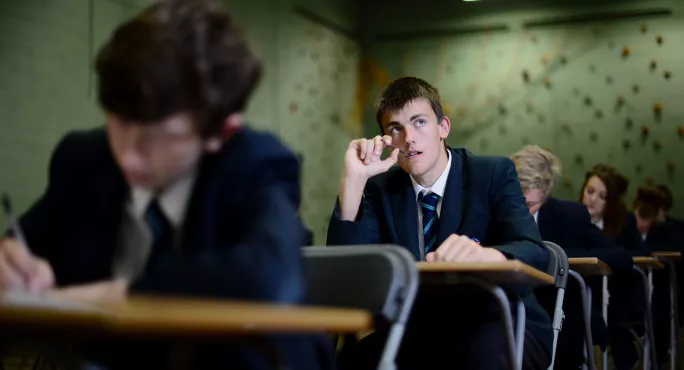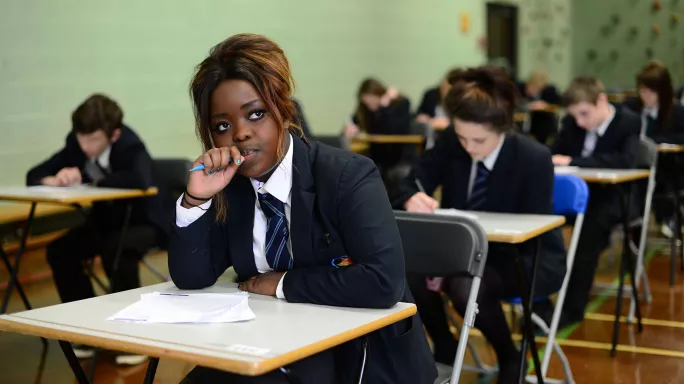GCSEs: 4 tips for invigilators to support anxious pupils
Share
GCSEs: 4 tips for invigilators to support anxious pupils
Most students will be anxious about exams. Often, as a recent Tes article pointed out, this can be healthy and can sometimes work in their favour.
But there are students who find that the anxiety can overwhelm and immobilise them. They are the students that we need to better support in schools. And I think training for invigilators may be the key.
It’s not as simple as just telling the invigilators who to look out for - as good as your pastoral team are, there will be students with no track record of anxiety who, come exams day, will suddenly suffer with it acutely.
Quick read: Have we forgotten to teach pupils how to learn?
Quick listen: Teach metacognition to boost exam results
Want more articles like this? Join our Tes Teaching and Learning Facebook group
Some of these students will have suffered for years but, thanks to outside support, this anxiety may have never manifested in the school environment. (As a side note here: that this can happen is understandable, but we must work with parents and young people so it does not - we need to be involved in these discussions so we can better support pupils).
We should also avoid just letting invigilators blindly judge for themselves who is anxious. Unfortunately, there are some students who will play up their symptoms and that can crowd out those who genuinely need help. This can be challenging for invigilators to spot, as they are likely to be meeting the students for the first time.
So in my view, if we are serious about pupil wellbeing, then, as the designated safeguarding lead, you should be properly training invigilators to better support pupils during the exam season.
GCSE dates: Find the key dates and exam timetables for the 2019 GCSEs
Here are my top tips for doing just that.
1. Get the words right
We all need to be speaking the same language. So if you talk about “coping strategies”, the pupil needs to use that term and so does the invigilator. That way, we can all ensure we know what each other is talking about.
One pupil has photos of her cats on her phone, which calm her down just before the exam. She has this with her up to the point when she enters the exam room and it is enough to get her in the right mindset to sit the paper.
If we all call this the same thing, then everyone knows what is happening, that it is allowed, and what it is for.
If we all call it something different, uncertainty creeps in and the situation can spiral to become more stressful than calming.
2. Provide guidance documents
I give the invigilators a handout with a list of coping strategies, including slow breathing, counting tiles or bricks (my favourite), slow-paced walking and not waiting with the crowd before the exam. This empowers invigilators to act where appropriate and also ensures they understand why certain behaviours are happening, and not to interfere.
3. Empower flexibility
Invigilators need to know that where a child is seated can make a big difference to how they feel in the exam hall, and that students can be moved if necessary.
For example, some students like to sit at the back, so they do not feel that everyone is staring at them; others prefer the front, so they can visualise that they are in a room on their own.
Obviously, seating plans can change depending on the exam, but if the invigilators know about specific worries, they can try to accommodate.
4. Encourage open communication
We need to ensure that invigilators understand that we want to know what they have seen, that this information will be received with thanks and will be acted upon.
If we are unapproachable, if we do not explicitly ask to be informed and if we dismiss worries, we close down communication channels that could be vital for a struggling student.
5. Ensure a non-judgemental team
Teens are judged from every angle all day as it is; they do not need an invigilator they have just met making assumptions about how valid their anxiety is or their reasons for being anxious.
Some basic information about anxiety and how it manifests and why it happens can ensure that invigilators do not slip into any unfounded judgements.
Ceri Stokes is assistant head (DSL) at Kimbolton School in Cambridgeshire. She tweets @CeriStokes





